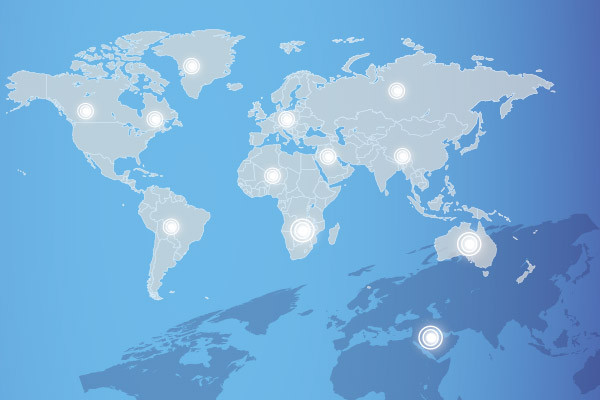- by Dr.Ibrahim Karsany ,
- Wednesday, 2nd July, 2025
The global economy today stands at a crossroads marked by the evolution of capitalism itself. For decades, financial capitalism has been the dominant mode of accumulation and power, characterized by the rise of large financial institutions, speculative markets, and shareholder value maximization that often eclipses long-term productive investment. Financial capitalism took off with the deregulation waves of the 1980s and the globalization of capital markets, allowing vast sums to move instantaneously around the globe in search of returns. It enabled the rise of new forms of wealth creation but also introduced systemic risks, inequality, and crises, most notably the global financial crisis of 2008.
Financial capitalism operates on a logic that prioritizes leverage, arbitrage, and short-term gains. Companies in this model often focus on financial engineering over industrial innovation, and entire sectors—from real estate to commodities—are increasingly treated as assets for speculation rather than for their underlying utility. Critics argue this form of capitalism diverts resources from productive uses, exacerbates inequality, and fosters cycles of boom and bust that undermine social stability and trust in markets.
In contrast, what some scholars and industry analysts now describe as “iCloud capitalism” represents an emerging stage that is reshaping the global economy around intangible assets, data, and platform-based business models. The term draws on the idea of “the cloud” not only as an IT architecture but as a metaphor for an economy organized around ubiquitous connectivity, network effects, and the commodification of human attention and behavior. Companies like Amazon, Apple, Microsoft, Google, Tencent, and Alibaba embody this mode of capitalism. They offer platforms that integrate production, distribution, and consumption while accumulating vast troves of data on users.
Where financial capitalism was defined by the movement of money across borders to seek arbitrage, iCloud capitalism is defined by the movement of data and the extraction of value from its analysis. The monetization of personal information, algorithmic recommendation systems, and targeted advertising have created new profit centers that often transcend traditional industrial categories. Moreover, platform companies aim to lock in users through network effects, creating quasi-monopolistic positions with high barriers to entry for competitors.
This shift has profound implications for the global economy. First, it changes the basis of competitive advantage. In the era of financial capitalism, access to capital markets and low-cost financing was decisive. In iCloud capitalism, it is data, AI, and the capacity to build ecosystems that bind consumers and businesses. Second, it alters labor markets. Financial capitalism relied on a professional class of financiers, analysts, and service workers. iCloud capitalism increasingly depends on software engineers, data scientists, and gig workers who serve algorithmically managed delivery and service platforms.
Third, it reshapes global supply chains. Financial capitalism contributed to outsourcing and the globalization of manufacturing as firms sought to maximize return on capital. iCloud capitalism, in contrast, integrates global value chains through digital control, logistics optimization, and predictive analytics, enabling even tighter coordination while maintaining flexibility. The COVID-19 pandemic accelerated this shift, making e-commerce, cloud services, and remote work essential infrastructure.
Fourth, it raises new questions of economic power and regulation. Financial capitalism was criticized for the disproportionate power of banks and hedge funds. iCloud capitalism raises concerns about the power of Big Tech companies that act as gatekeepers for communication, commerce, and information. Debates around antitrust enforcement, data privacy, and algorithmic transparency reflect the tension between the economic dynamism these companies create and the societal risks they pose.
At a geopolitical level, this transition also transforms competition between states. The US and China have become the key players in iCloud capitalism, each cultivating national champions and investing in AI, quantum computing, and next-generation communications. While financial globalization spread US financial norms and institutions, the rise of iCloud capitalism may fragment the global economy into competing digital spheres of influence, as seen in the growing “splinternet” phenomenon and strategic technology rivalries.
Emerging markets face a complex dilemma in this context. While financial capitalism offered them access to capital, often at the cost of financial instability, iCloud capitalism offers access to global markets and services but also risks new forms of dependency. Countries that lack the capacity to develop their own data infrastructure and AI ecosystems may find themselves locked in the technological standards and business models of foreign platforms, raising questions about digital sovereignty.
For societies, the shift to iCloud capitalism has both opportunities and risks. On the one hand, it enables new services, greater convenience, and the democratization of certain kinds of production (such as app development or creative work via platforms). On the other, it threatens jobs through automation, concentrates wealth in the hands of platform owners and investors, and undermines local cultures and privacy norms through pervasive surveillance capitalism.
Ultimately, the contrast between financial capitalism and iCloud capitalism is not absolute. The two are intertwined. Big Tech firms rely on financial markets to raise capital and maintain sky-high valuations. Institutional investors hold major stakes in platform companies, and private equity is deeply involved in funding technology ventures. But the shift in emphasis—from managing money flows to managing data flows—is undeniable and suggests that economic theory, regulation, and governance will need to adapt.
The challenge for the global economy will be to balance the productivity gains, convenience, and innovation that iCloud capitalism offers with policies that mitigate its downsides: monopolistic behavior, labor precarity, surveillance, and loss of accountability. This balance will define the next era of globalization, development, and the distribution of power in the 21st century.

Dr.Ibrahim Karsany
Economic consultant
Read More
Areas of Expertise
- Public Policy
- Development issues
- Economic Planning
- Competitiveness
Education
Ph.D. in Economics.
bio
Dr. Ibrahim Karsany graduated from Khartoum University with a Bs.C. (Hon) in economics, followed by a Ph.D. in development economics from Leeds University, England. He has accumulated a rich research experience in different fields of study ranging from development studies, economic planning, and problems of under-development to total quality management and competitiveness of nations.
Dr. Karsany’s work experience extends over four decades and ranges from university teaching, at both undergraduate and graduate levels, to working in international organizations such as the United Nations Development Programme (UNDP) and in Governments, e.g, as Advisor to the Ministry of Economy, Oman, Muscat and as Economic Development Advisor, Department of Economic Development, Dubai, as well as in the Private Sector (DPPRC, Bhuth).
He has been a Visiting Professor and Scholar at reputable academic institutions; notable amongst them are Bergen University, Norway, The Scandinavian Institute for African Studies, Uppsala, Sweden, and The Hungarian Academy of Science, Budapest. He also published a number of studies in learned specialized international journals and served on the Editorial Boards of Academic Journals in Sudan and abroad; e.g, The Review of African Political Economy (ROAPE), published in England. He has also presented papers as well as participated in a considerable number of international conferences, seminars and workshops and has published more than sixty pieces in daily printed as well as electronic papers covering a wide range of socio-economic as well as political topics and issues.

